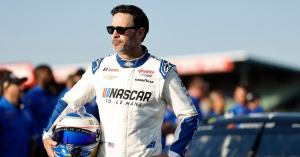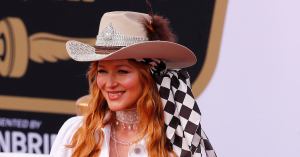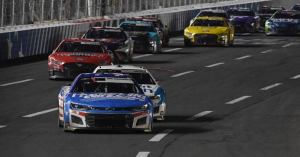The 104th Indy 500 takes place on Sunday afternoon, marking a unique day in race history. No fans are attending the iconic event due to COVID-19, and there is also a distinct lack of female drivers competing. Now fans are concerned about this latest development.
The Charlotte Observer spoke with multiple female competitors for an article about the change in 2020. Janet Guthrie, the first woman to compete in the Indianapolis 500, discussed the economic barriers and lack of sponsorship opportunities that often keep women and people of color out of motorsports. “There are women out there with the talent,” Guthrie said. “But what I’ve always said is that what the sport really needs is a woman with all the stuff that it takes: The talent, the desire, the focus, the emotional detachment, all the things driving requires, plus her own fortune.”
Videos by PopCulture.com
“Explains so much, and disappoints more because we’re still effectively 50 years behind the times,” one fan commented on Twitter after reading the article. Many others weighed in and agreed with the sentiment. They explained that they wanted to watch Pippa Mann compete once again during the Indy 500 and that they were very frustrated after learning why she would not suit up on Sunday.
Mann, who competed during the 103rd Indy 500 in 2019, had intentions of racing in 2020, but she could not secure the corporate sponsorship necessary. She explained that it would “be easy” to point the finger at the pandemic as the reason for the lack of money, but she said that the issue has existed before COVID-19. Mann noted that women in motorsports have been struggling for years.
Gil Smith, who runs a motorsports marketing company called Infield Media & Promotions, also weighed in. He works with more than a dozen clients, both male and female, across multiple racing circuits. As Smith explained, he has to approach major corporate sponsors differently based on the gender of each client.
“Strangely enough, I can approach a sponsor with a 16-year-old kid who no one knows that’s a guy and everyone says, ‘Oh, 16-year-old? That will be phenomenal!’” Smith said. “When I approach somebody with a resume like Amber, the first question is, ‘Well, can she drive?’ You start getting all these questions about their ability to really perform as an athlete. It’s so different from the questions around a male athlete. ‘Is she capable? Can she stand the grind?’ It’s this resiliency that seems to come into question.”
Danica Patrick, a former competitor in the Indy 500, also weighed in on the lack of females in 2020’s race. She expressed the opinion that it’s “not a step backward” for the sport to have one season without a female competitor. Instead, Patrick said it’s important to look at the “macro” of the sport and examine the differences between 2020 and the past 50 years.
“And then you’ll see that, my goodness, just because there’s one that doesn’t go so well, it’s like just because 2020’s not going too well doesn’t mean this whole decade is garbage,” Patrick said. “Right? So we need to look at the bigger version to understand it’s far, far more normal now to have females in the race, and the fact that there is a story about there not being one is a story.”





